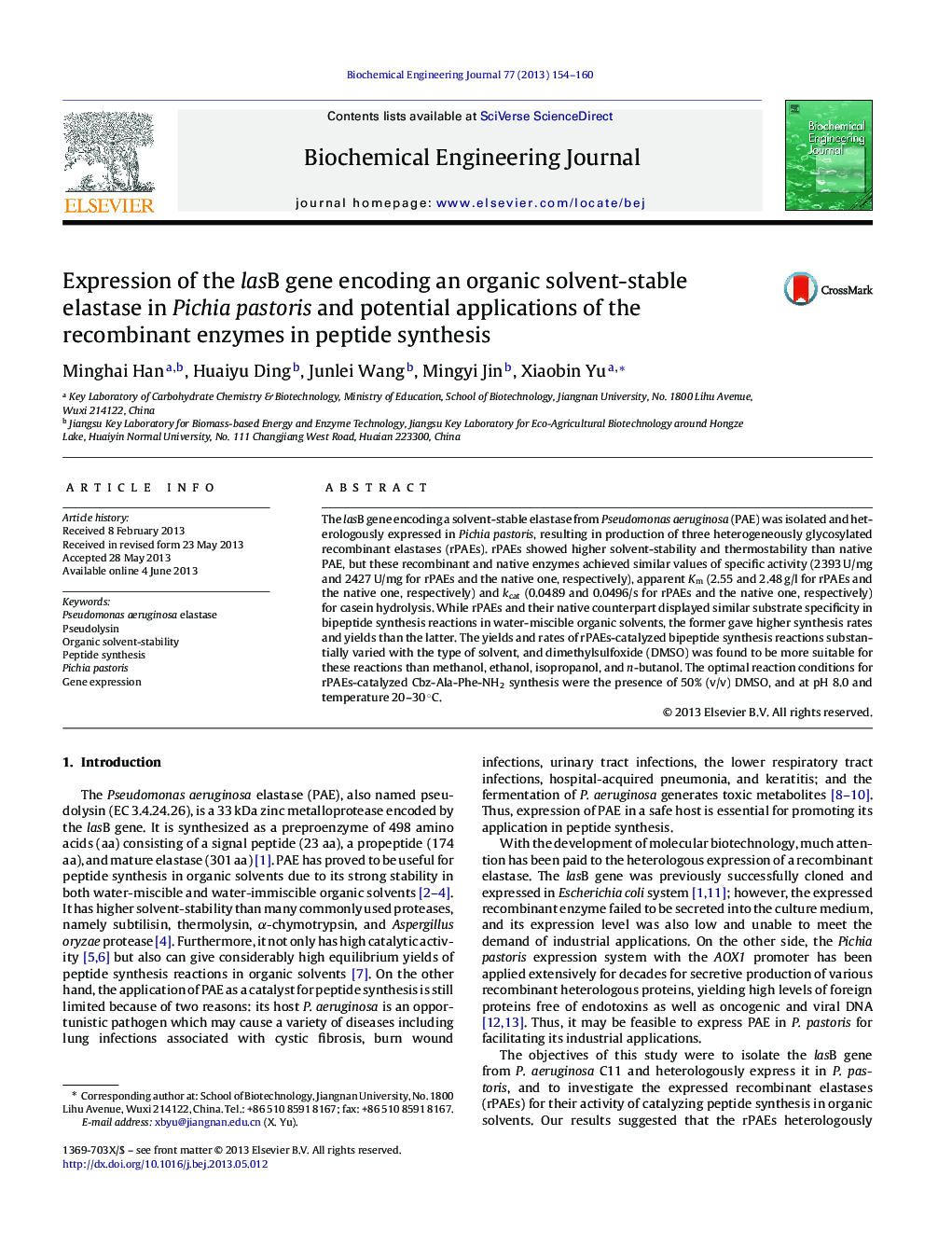| Article ID | Journal | Published Year | Pages | File Type |
|---|---|---|---|---|
| 6484114 | Biochemical Engineering Journal | 2013 | 7 Pages |
Abstract
The lasB gene encoding a solvent-stable elastase from Pseudomonas aeruginosa (PAE) was isolated and heterologously expressed in Pichia pastoris, resulting in production of three heterogeneously glycosylated recombinant elastases (rPAEs). rPAEs showed higher solvent-stability and thermostability than native PAE, but these recombinant and native enzymes achieved similar values of specific activity (2393 U/mg and 2427 U/mg for rPAEs and the native one, respectively), apparent Km (2.55 and 2.48 g/l for rPAEs and the native one, respectively) and kcat (0.0489 and 0.0496/s for rPAEs and the native one, respectively) for casein hydrolysis. While rPAEs and their native counterpart displayed similar substrate specificity in bipeptide synthesis reactions in water-miscible organic solvents, the former gave higher synthesis rates and yields than the latter. The yields and rates of rPAEs-catalyzed bipeptide synthesis reactions substantially varied with the type of solvent, and dimethylsulfoxide (DMSO) was found to be more suitable for these reactions than methanol, ethanol, isopropanol, and n-butanol. The optimal reaction conditions for rPAEs-catalyzed Cbz-Ala-Phe-NH2 synthesis were the presence of 50% (v/v) DMSO, and at pH 8.0 and temperature 20-30 °C.
Keywords
Related Topics
Physical Sciences and Engineering
Chemical Engineering
Bioengineering
Authors
Minghai Han, Huaiyu Ding, Junlei Wang, Mingyi Jin, Xiaobin Yu,
